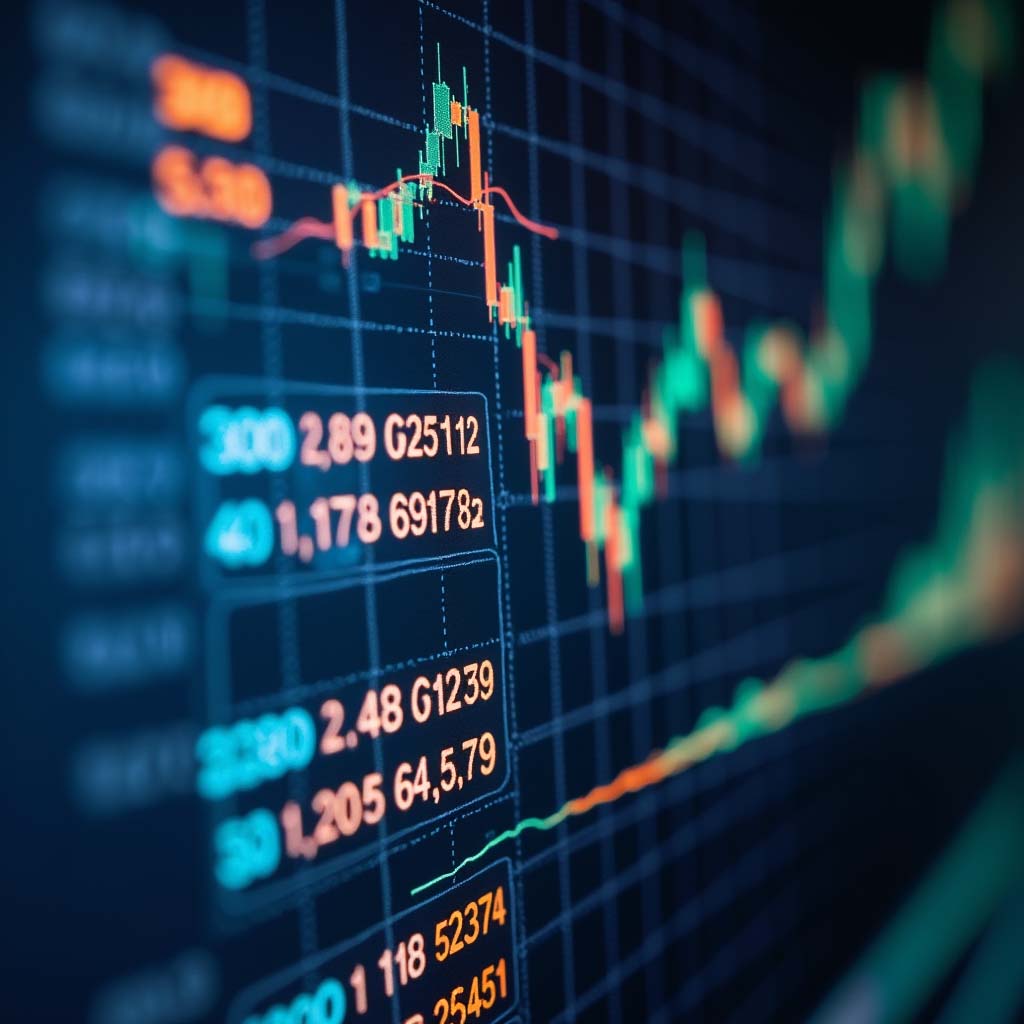
Derivatives brokers play a crucial role in financial markets, acting as intermediaries between traders, institutional investors, and exchanges. They facilitate the buying and selling of derivative contracts, including futures, options, and swaps, helping market participants manage risk, speculate on price movements, and optimize trading strategies. Their influence extends to liquidity provision, price discovery, and risk management, shaping market efficiency and stability – high leverage broker.
Market Intermediation by Derivatives Broker
Derivatives brokers act as intermediaries between traders and exchanges, ensuring efficient trade execution. They connect buyers and sellers, provide liquidity, and help reduce market friction. By facilitating transactions, brokers contribute to price stability and market depth. Their role extends to managing counterparty risk and optimizing trade execution through advanced order-matching systems.
How Brokers Provide Liquidity in Derivatives Market
Liquidity is essential for an efficient derivatives market, ensuring that traders can enter and exit positions without significant price distortions. Brokers contribute to liquidity by:
- Matching Orders Efficiently – They connect buyers and sellers, executing trades in real time and reducing price slippage.
- Facilitating Market-Making – Some brokers engage in market-making, continuously quoting bid-ask spreads to keep trading activity fluid.
- Leveraging Institutional Flow – Institutional investors, hedge funds, and proprietary trading firms rely on brokers for block trades and complex order execution, enhancing overall market depth.
Greater liquidity leads to tighter spreads, reducing transaction costs and benefiting all market participants.
Impact of Market Intermediation on Trading Efficiency
Brokers streamline trade execution by employing advanced order routing systems and risk assessment tools. This enhances trading efficiency through:
- Algorithmic Execution – Automated order placement minimizes latency and ensures optimal pricing.
- Reduced Counterparty Risk – Brokers verify counterparties, ensuring compliance and mitigating settlement risks.
- Access to Global Markets – Many brokers provide multi-asset and cross-border trading capabilities, allowing traders to diversify exposure.
By improving trade execution speed and reliability, brokers contribute to a more resilient derivatives market.

Role of Derivatives Broker in Price Discovery
How Brokers Influence Market Pricing Mechanisms
Price discovery in derivatives markets depends on real-time supply and demand dynamics. Brokers influence pricing through:
- Order Flow Transmission – Brokers channel market sentiment by aggregating buy and sell orders, influencing asset price movements.
- Spread Optimization – By narrowing bid-ask spreads, brokers facilitate fairer pricing and reduce volatility.
- Execution of Large Orders – Institutional traders rely on brokers for block trade execution, which can impact short-term price trends.
Market transparency improves when brokers aggregate and disseminate price information efficiently.
Role of Supply and Demand in Derivative Pricing
The pricing of derivative contracts hinges on underlying market conditions. Brokers play a role in shaping this process by:
| Factor | Impact on Derivative Pricing |
| Market Sentiment | Brokers capture order flow trends, reflecting bullish or bearish conditions. |
| Volatility Levels | High volatility increases option premiums and margin requirements. |
| Interest Rates | Affect futures pricing through the cost of carry model. |
| Time Decay | Options pricing is influenced by theta, which brokers account for in execution. |
By integrating these factors, brokers ensure more accurate pricing and efficient market function.
Derivatives Broker as Risk Management Facilitator
Strategies Brokers Use for Hedging and Arbitrage
Brokers enable risk mitigation and profit opportunities by employing strategies such as:
- Delta Hedging – Offsetting directional risk by taking opposing positions in the underlying asset.
- Arbitrage Trading – Exploiting price discrepancies across exchanges to capture risk-free profits.
- Spread Trading – Taking advantage of pricing differences between related contracts, such as calendar spreads.
These strategies help market participants manage exposure while maintaining market stability.
Speculation vs. Risk Mitigation in Derivatives Trading
Traders engage with brokers for different objectives:
- Speculators – Seek profit from price fluctuations, often using leverage.
- Hedgers – Use derivatives to offset risks from adverse market movements.
Brokers cater to both groups by offering tailored solutions, from risk analysis tools to structured products.
By balancing speculative activity with hedging functions, derivatives brokers contribute to market efficiency, ensuring stability and liquidity for all participants.

Client Services Offered by Derivatives Broker
Derivatives brokers provide a range of services tailored to institutional and retail traders, from strategic advisory to trade execution. Their role extends beyond simple order placement, encompassing risk assessment, market research, and access to sophisticated trading tools. These services help investors make informed decisions, whether they are hedging risks or seeking speculative opportunities.
Advising Institutional vs. Retail Clients on Derivative Strategies
Institutional and retail traders have distinct needs when navigating the derivatives market. Brokers offer specialized guidance based on trading objectives, risk tolerance, and market conditions.
| Client Type | Typical Strategies | Broker Assistance |
| Institutional Investors | Hedging, portfolio diversification, arbitrage | Custom risk models, block trade execution |
| Hedge Funds | Speculation, volatility trading, algorithmic strategies | High-frequency execution, leverage management |
| Retail Traders | Speculative trading, options strategies | Market research, educational resources |
Institutional clients benefit from tailored risk models and custom execution strategies, while retail traders rely on educational tools and market insights.
How Brokers Optimize Entry and Exit Points for Investors
Effective trade execution is essential for maximizing returns and minimizing risks. Brokers enhance trade timing through:
- Order Flow Analysis – Tracking large transactions to anticipate price movements.
- Volume and Liquidity Insights – Identifying optimal trade windows to avoid price slippage.
- Technical Indicators – Providing clients with real-time signals such as moving averages and support/resistance levels.
- Algorithmic Execution – Using automated strategies to secure optimal entry and exit prices.
By leveraging these tools, brokers help investors improve trade execution and overall portfolio performance.

Market Analysis Conducted by Derivatives Broker
Derivatives brokers rely on in-depth market analysis to support clients with trading decisions. Their expertise in quantitative models and algorithmic strategies ensures data-driven insights, reducing uncertainty in volatile markets.
Quantitative Models Used in Derivatives Market Forecasting
Quantitative analysis is fundamental in derivatives trading, helping brokers assess market trends and predict price movements. Common models include:
- Black-Scholes Model – Used for option pricing, incorporating volatility, time decay, and interest rates.
- Monte Carlo Simulations – Evaluates potential future price paths by running probabilistic scenarios.
- GARCH (Generalized Autoregressive Conditional Heteroskedasticity) – Measures volatility clustering in financial markets.
- Mean Reversion Models – Identifies assets that tend to return to historical price averages.
These models provide a structured approach to market forecasting, helping traders make informed decisions.
How Brokers Use Algorithms for Trading Strategies
Algorithmic trading plays a crucial role in modern derivatives markets. Brokers deploy trading algorithms for:
- Arbitrage – Exploiting price discrepancies between exchanges or asset classes.
- Market Making – Providing continuous buy and sell quotes to enhance liquidity.
- Trend Following – Executing trades based on moving averages and momentum indicators.
- High-Frequency Trading (HFT) – Capitalizing on microsecond price movements using sophisticated infrastructure.
By integrating algorithms, brokers improve trade execution speed, reduce human errors, and enhance market efficiency.

Regulatory Compliance Responsibilities of Derivatives Broker
Regulatory compliance is a key responsibility for derivatives brokers, ensuring that market participants operate within legal frameworks. Brokers must adhere to stringent financial regulations and maintain transparency in reporting.
Key Financial Regulations Affecting Derivatives Brokers
Regulators impose strict guidelines to maintain market integrity and prevent financial misconduct. Key regulations include:
- Dodd-Frank Act (U.S.) – Governs OTC derivatives and mandates central clearing for certain contracts.
- European Market Infrastructure Regulation (EMIR) – Requires risk mitigation measures for derivatives traded in Europe.
- Basel III Framework – Sets capital requirements for financial institutions dealing in derivatives.
- MiFID II (Markets in Financial Instruments Directive) – Enhances transparency in derivatives trading within the EU.
Brokers must ensure compliance with these regulations to avoid penalties and maintain operational integrity.
Documentation and Reporting Requirements in Derivatives Trading
Regulatory bodies require extensive documentation and reporting to ensure transparency. Brokers must handle:
- Trade Reporting – Submitting transaction details to regulatory agencies.
- Risk Disclosures – Informing clients about potential risks associated with derivatives trading.
- Record-Keeping – Maintaining detailed trade logs for audit purposes.
- KYC (Know Your Customer) & AML (Anti-Money Laundering) Compliance – Verifying client identities and monitoring transactions for suspicious activity.
By adhering to these requirements, brokers contribute to a secure and well-regulated financial market.

Future of Derivatives Broker Role in Evolving Financial Markets
The role of derivatives brokers is evolving rapidly as technology reshapes financial markets. Increased automation, artificial intelligence (AI), and regulatory developments are redefining how brokers facilitate trades, manage risk, and provide value to clients. As these shifts unfold, brokers must adapt to maintain their relevance in a competitive landscape.
How AI and Automation Are Changing Broker Services
AI and automation have become integral to derivatives trading, improving efficiency and reducing human error. Brokers increasingly rely on machine learning algorithms, predictive analytics, and high-frequency trading (HFT) strategies to streamline operations. Key developments include:
- Automated Market Making – AI-powered algorithms continuously update bid-ask spreads, enhancing liquidity.
- Risk Management Algorithms – Predictive models assess market volatility, allowing brokers to adjust margin requirements dynamically.
- Smart Order Routing (SOR) – Automated systems scan multiple exchanges to secure the best execution prices.
- Natural Language Processing (NLP) Tools – AI-driven insights analyze news, earnings reports, and market sentiment for more informed trading decisions.
As automation advances, brokers will shift from manual trade execution toward advisory roles, offering clients strategic insights and risk management solutions.
Trends Influencing Derivatives Trading Strategies
Several market trends are shaping the future of derivatives trading, impacting broker services and investor strategies:
- Expansion of Crypto Derivatives – Digital assets are gaining traction, with Bitcoin and Ethereum futures attracting institutional investors.
- Decentralized Finance (DeFi) Growth – Smart contracts and blockchain-based derivatives trading platforms are reducing reliance on traditional brokers.
- Regulatory Changes – Stricter compliance requirements, such as MiFID II and Basel III, are influencing broker operations and margin rules.
- Retail Trading Boom – More individual investors are accessing complex derivatives, increasing demand for user-friendly broker platforms.
Brokers who leverage these trends will stay competitive, offering innovative solutions to meet shifting market demands.
Frequently Asked Questions About Derivatives Broker
What Does a Derivatives Broker Do in Financial Markets?
A derivatives broker acts as an intermediary between traders and the market, facilitating transactions in futures, options, swaps, and other derivative instruments. Their responsibilities include:
- Providing Market Access – Connecting clients to exchanges and liquidity providers.
- Executing Trades – Facilitating order placement and ensuring optimal execution.
- Offering Advisory Services – Helping clients develop hedging and speculative strategies.
- Managing Risk – Assisting with margin requirements and regulatory compliance.
Brokers play a critical role in ensuring smooth market operations, improving liquidity, and helping traders navigate complex financial instruments.
How Do Brokers Facilitate Derivatives Trading?
Brokers enhance trading efficiency by:
- Offering Trading Platforms – Providing access to exchanges via electronic trading systems.
- Leveraging Technology – Using AI and machine learning for trade execution and risk assessment.
- Ensuring Liquidity – Acting as market makers or connecting clients to liquidity pools.
- Compliance Support – Helping traders adhere to regulatory requirements and margin calls.
By streamlining the trading process, brokers enable investors to execute trades with lower costs and greater transparency.
What Are the Risks Associated With Using a Derivatives Broker?
While brokers facilitate trading, there are potential risks to consider:
- Counterparty Risk – If a broker becomes insolvent, clients may face challenges accessing funds or closing positions.
- Hidden Fees – Some brokers impose spreads, commissions, or platform fees that can impact profitability.
- Execution Risk – Delays in order execution or slippage may occur, particularly in high-volatility markets.
- Regulatory Issues – Using an unregulated broker increases exposure to fraud or market manipulation.
Traders should conduct due diligence, ensuring their broker is reputable, properly regulated, and transparent about fees and trading conditions.
